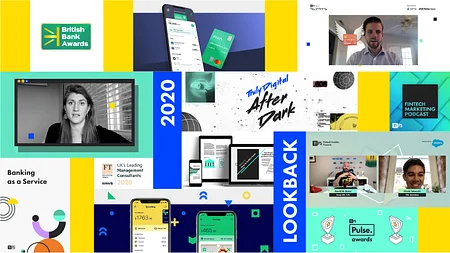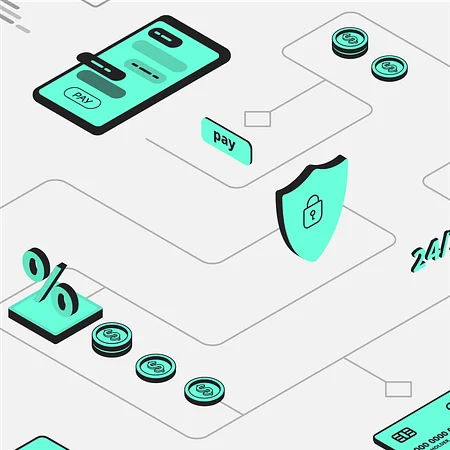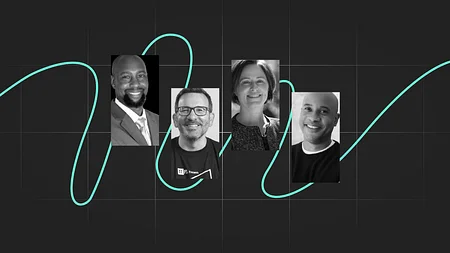Resilience through COVID: How we’ve adapted

2020 has been one hell of a year, and - like most companies - battling through COVID as a business is one of the biggest challenges we’ve faced.
So waking up this morning to see that we've made it onto LinkedIn's 2020 Top Startups list for the third year running has been incredible.
This time, though, it’s not just about giving ourselves a pat on the back and popping the bubbles. That’s all well and good, but we can’t forget to acknowledge how we got here and what we can learn from our shared experiences this year.
Let’s cast our minds back to March
As the COVID situation began to escalate, our main priority was the health and safety of our team. We reviewed the government guidelines, listened to our team’s preferences and closed our shiny London office a week before the national lockdown was announced.
Fortunately, as a digitally native company, we were well versed in the latest tech to support remote working. Zoom, Miro, and Mural were platforms we were familiar with.
Culturally, we’d already established some distributed working practices, with some team members already working remotely full-time. And through our consultancy work, we were accustomed to working across multiple sites, geographies and time zones.
But there were still a lot of unknowns. How would we look after our physical health? What steps should we take to protect our mental wellbeing? And how could we possibly replicate the social connectivity, serendipity and creativity you get from being amongst the hustle and bustle of a busy office?
It’s the little things we didn’t know we’d miss: catching up with Bianca over a tea in the kitchen or bumping into Simon on the daily Pret run.
We knew we wouldn’t have all the answers - after all, this was new to everyone. We weren’t just adapting to remote working, but remote working during a global pandemic. What we did know was that our team was a smart bunch, and we’d work together to make the transition more manageable.
It’s the little things we didn’t know we’d miss
We adopted a top-down, bottom-up approach
We gave people a forum to share ideas and start initiatives, combined with outlining our plans for what we would do centrally, via the People & Operations functions.
Very quickly Zoe, our Business Manager, started running morning yoga sessions, and Jamie, our mental health first aider, offered up his services as a listening ear. Our People team held individual sessions with those who needed them and made everyone aware of the resources available, such as our Employee Assistance Programme.
We set up a remote working channel so people could share their tried-and-tested ‘WFH’ tips and tricks, from how to set up your home working space through to company Zoom etiquette. This channel proved itself to be a handy collaboration tool, and we curated the best bits into a remote working section on our internal wiki.
So far, so good, right? But soon the novelty of lockdown wore off and people became fatigued with the new world we’d been thrown into. The charm of zoom quizzes faded and everyone was desperate for a shred of normalcy; for holidays, hugs and a time pre-hand sanitiser.
Team morale also took a big hit this summer, when we made the difficult decision to furlough some of our employees and make a number of them redundant. That was undoubtedly the hardest period of the last year.
Everyone was desperate for a shred of normalcy; for holidays, hugs and a time pre-hand sanitiser.
When you can’t plan ahead, be responsive
With the situation constantly evolving, it was difficult to plan ahead - especially when it came to debates over whether to reopen our office. Being a relatively small team of 130 people, and agile by nature, we continued to embrace our DNA and our adaptive bottom-up approach.
We ran a company survey in July to understand how people were managing with this new way of working and how they pictured working life in the future.
So, where are we now?
We’re getting ready to reopen the office on a voluntary basis in October (following the government guidelines for safety, of course). We hope this will provide those who haven’t got the best home working set-up an easier option, or simply a change of scenery for those who need it.
We’re setting up a cross-company group to continue to evolve our working practices, taking the ‘best bits’ and learnings from around the business and sharing it with the wider team. And we’re grappling with how the future of working at 11:FS will look in the long-term.
It’ll be interesting to see what happens when the office opens its doors once again - how many of us will use it? How will it impact how those in the office and those at home collaborate? As with everything unfamiliar, there are questions to be answered and learnings to be taken, but it’s a step in the right direction and (hopefully) a sign of better things to come.
We can’t thank everybody in the business enough for everything they’ve done over the past six months (and before that). If nothing else, we’re incredibly grateful to have this award to remind us of how far we’ve come and what a resilient team we have.
Thank you, LinkedIn, for recognising 11:FS.



